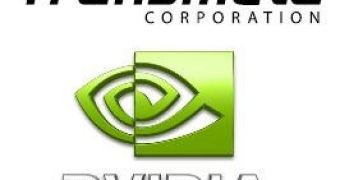Transmeta Corporation recently announced that it included Nvidia into its group of LongRun and LongRun2 low-power technologies licensees. It looks like this licensing might keep the company alive for quite a long time. Nvidia had to pay a "one-time, non-refundable license fee of $25 million", which granted the Santa Clara company a "non-exclusive license to Transmeta's Longrun and Longrun 2 technologies and other intellectual property".
"LongRun2 Technology is a suite of advanced power management, leakage control and process compensation technologies that can diminish the negative effects of increasing leakage power and process variations in advanced submicron geometries. LongRun2 Technology addresses these challenges with a broad set of solutions that include advanced algorithms, innovative circuits, unique devices and structures, process techniques, software and manufacturing optimization methods," said Transmeta in the press release.
All of today's trends point to power management, mainly in what concerns graphics cards and processors for ultraportable devices. The industry is aware of the fact that extended run-time for portable machines can be achieved through power efficient devices that use the battery rather than accelerating the battery technology to a point where it can offer more working time.
As Nvidia is focused on the graphics cards segment, its interest in such technologies can easily be seen. The company also has a ULV processor on the market, the Tegra, said to need less than a single watt of power. Tegra is an ARM11-based 750MHz APX 2500 with encoding and decoding HD video capabilities. The processor can also drive up to 1280 x 1024 resolution (SXGA) on displays and up to 12-megapixels for cameras.
Transmeta has been moving from being a processor manufacturer to a more nimble IP company, and has gained some success with it. The company announced that it has recorded $366,000 in licensing revenue during the second quarter of the year, going up from the first, during which it registered $240,000. All services and end-of-life product revenue sources have been phased out by Transmeta.
The company has total operating expenses of $1.9 million per quarter range, but it almost manages to cover them through the interest income ($1.8 million) delivered by the settlement the company has with Intel for counterclaims dropping. Transmeta is not looking too bad at the moment, as it has about $141.8 million in its bank accounts and can expand its business as well. It might prove successful by the end of the year.

 14 DAY TRIAL //
14 DAY TRIAL //